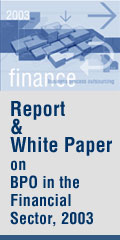|


|
Indian Inflation rate falls to single digit at 8.98 per cent
Inflation dropped to its lowest levels in nearly six months in early November as price levels in the case of both metals and fuels showed a sharp decline.
India's wholesale price index, the most widely watched inflation measure, fell sharply to 8.98 per cent for the week ended November 1, 2008 from 10.72 per cent in the corresponding previous week.
It was the lowest reading since May 24, 2008, when the rate was 8.90 per cent and a drop of almost 4% from its August peak of 12.91 per cent.
In the case of primary articles group, inflation rate fell by 40 basis points (one basis point is one-hundredth of a percentage point) to 11.01 per cent for the week ended November 1, 2008. However, it is the commodity group ‘fuel and power’ which fell the most. The inflation rate fell sharply to 9.22 per cent in the current week as compared to 14.09 per cent in the previous week.
The substantial easing in inflation comes at a time when Indian policy makers are struggling to protect growth and shield the economy from the impact of the global economic slowdown. The financial markets feel that the softening inflation will enable RBI to cut repo and reverse repo rates to create more liquidity in a slowing economy.
Further the decline, helped by a steep drop in prices of some petroleum products and metals, provided a welcome relief to the central government reeling under a raft of bad news on the economic front from falling exports and a drop in tax collections.
Responding to the latest inflation figures, Federation of Indian Chambers of Commerce & Industry (FICCI) has called for a cut in the interest rates and further easing of credit policy to fight the sharp slowdown in the industrial sector. The softer inflation regime creates scope for more monetary push for boosting industrial growth. This decline in the prices is certainly good news for the industry as they have been witnessing severe cost pressures for the past few quarters. However, the resultant decrease in the prices of manufactured goods might be a cause of concern in near future, which may lead to lowering of investment levels. Thus a balance between the input price decrease and decrease in the prices of finished goods will have to be maintained, added FICCI release.
Reacting on the fall of inflation to 8.98%, The Associated Chambers of Commerce and Industry of India (ASSOCHAM) has said that the single digit growth in inflation needs policy makers to shift their further concern for the growth of economy to 8 per cent by creating more consumer demand and encourage corporate sector investments with creation of job opportunities.
The ASSOCHAM expressed hope that the inflation target of 7 per cent set by the RBI will be achieved by the end of current fiscal itself.
Inflation over 8.5% Could Slow India's GDP Growth To 7.8% in 2008 ...
read more
Inflation in India may peak in December 2008 ...
read more
CLICK FOR Updates on Domestic Lending Rates
CLICK FOR SPECIAL SECTION ON GLOBAL FINANCIAL CRISIS
CLICK FOR MORE FEATURES & STORIES
|
|
|